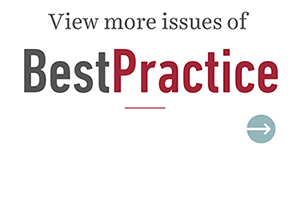Q&A with Dolores Espinal, MPH, Director of the Temple Care Integrated Network
As the new Director of the Temple Care Integrated Network (TCIN), Dolores Espinal, MPH, is dedicated to helping network partners meet their performance goals. She plays a crucial role in fostering communication and collaboration between primary care offices and the Temple Center for Population Health.
With more than 13 years of public health program management experience, Espinal brings extensive expertise supporting primary care offices to achieve better quality outcomes. She joined Temple from Cooper University Health, where she was a program manager for population intelligence and oversaw pay-for-performance and quality improvement programs for Medicare and Medicaid populations. Prior to that, she was a program manager for clinical innovation at Cooper, where she oversaw the implementation of a metabolic control program at the Urban Health Institute for Medicare and Medicaid patients with cardiovascular disease.
Dolores earned a master’s degree in public health from Drexel University and an undergraduate degree in sociology from Temple University.
Question: We are excited to have you on board the TCIN team. Can you share with us what it means to be the Director of the Temple Care Integrated Network?
DE: As the Director of the Temple Care Integrated Network (TCIN), I oversee the partnerships between the Temple Center for Population Health and Health Partners Plans to run an integrated healthcare network in North Philadelphia. I direct the programming and support for the community-based physicians within the TCIN network to ensure that they have quality improvement metrics in place and systems to increase care and follow-up procedures for patients.
Question: Tell us more about how your role supports partner clinics to achieve their quality metric goals.
DE: My role in overseeing partner clinics can look like many different things, depending on each clinic’s needs. I see myself almost as a consultant for the clinics as I act as a sounding board for them and help them work through their challenges and questions. This can look like troubleshooting new systems, updating those systems, and helping the clinics to question where the weaknesses are, or even guiding a clinic through utilizing Temple’s resources to support efforts to reduce repeat visits.
Question: How do you help the partner clinics meet the needs of the patient population?
DE: My approach is driven by quality improvement and standardization of care. I can’t control what the population is, and I can’t prevent staff turnover. However, I try to focus on whether workflows are systematic across the board – assessing whether we are using the same tools and implementing the best practices every single time for every patient.
Question: How does your expertise help achieve better quality outcomes for the partner clinics?
DE: Most of my position is geared toward creating better quality outcomes for partner clinics, and there are various ways to achieve that goal. In part, it depends on the patient population and the needs of each clinic, but there are different ways to get better outcomes. I have experience using data-driven approaches to guide systematic approaches, which will help clinics overall be able to improve their quality metrics. Some of these include guiding a clinic on how to set up automatic coding in EPIC to flag certain patient populations or reviewing claims data to identify patterns in care. Together, we can develop benchmarks for future quality improvement goals.
Question: Now that you have been with TCIN for a few months, what are some future developments and goals you hope to bring to the program?
DE: My experience includes clinical innovations with Medicare and Medicaid populations, helping to create systematic approaches such as patient panel management and system coding. As I settle into the role, I hope to increase communication and improve resource utilization between the clinics and the hospital. For example, I previously established a 7-day follow-up system with patients who have been discharged from the hospital and hope to create a similar system for clinics within the TCIN to reduce emergency department use and redirect care to primary care teams. By implementing systems and quality metric improvements with our partner clinics, we can optimize care across TCIN and create better healthcare outcomes.
